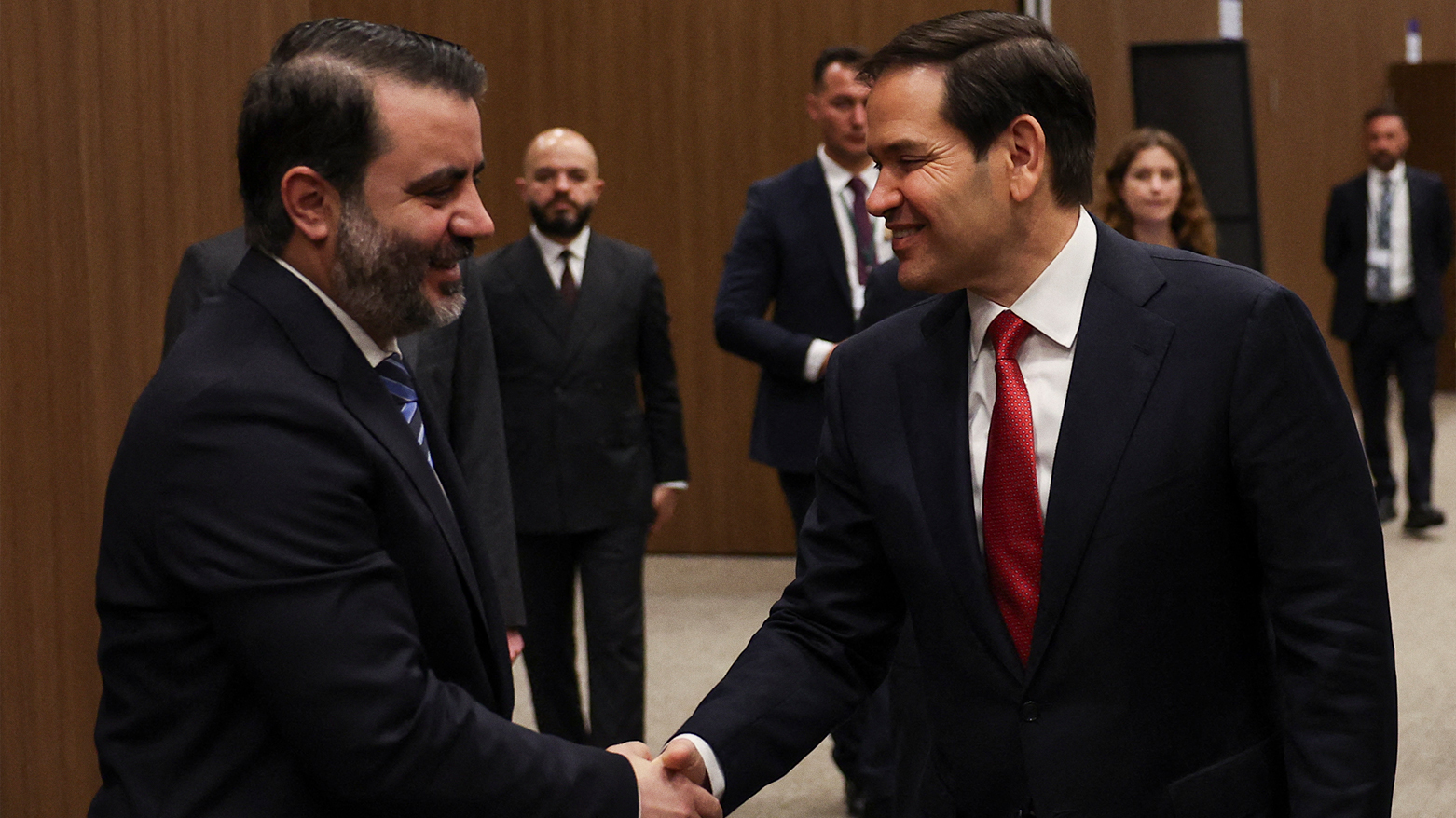A New Middle East? U.S.-Syria Rapprochement Could Reshape the Region
Rubio confirmed that preparatory work for lifting sanctions had been ongoing and that Syrian officials had already been granted visas to meet with U.S. officials.

By Ahora Qadi
ERBIL (Kurdistan24) – The U.S. Secretary of State Marco Rubio announced the beginning of efforts to normalize relations between Washington and Damascus, following his Thursday meeting with Syrian Foreign Minister Asaad al-Sheibani in Antalya, Turkey.
The remarks were made during a press conference where Rubio emphasized Washington’s shift toward peace-building and ending prolonged regional conflicts.
Addressing criticism over U.S. engagement with Syria while the Ukraine war continues, Rubio firmly rejected the idea that dialogue undermines U.S. values.
“They’re not critics of the U.S., then, they’re critics of peace,” he said. “We want the war to end. We want to save lives... The President feels like he has a unique opportunity to be a catalyst for that; he’s going to attempt to do it.”
He further added that President Trump’s diplomatic approach deserves praise rather than skepticism.
“The process to us is less important than the outcome. And the outcome needs to be not just the peace but a sustainable peace, a durable peace.”
Syria’s New Leadership Opens to Pluralism and Regional Peace
Rubio said the U.S. now sees a “new relationship” emerging with Syria’s transitional authorities. Despite only 24 hours of formal engagement, Rubio cited a commitment from Damascus to build a pluralistic society and expel foreign fighters and destabilizing elements.
“They have expressed an interest in being at peace with all of their neighbors, including Israel... They have expressed an interest in driving out foreign fighters and terrorists and others that would destabilize the country and are enemies of this transitional authority. And they’ve asked for our help, and so we’re going to try to help them.”
He acknowledged the long road ahead but described the moment as a “historic opportunity” that could reshape the region dramatically.
Clearing Chemical Weapons, Attracting Investment
Rubio disclosed that the Syrian delegation had asked for U.S. technical support to identify and eliminate chemical weapons left behind from the previous regime.
“They are victims of the use of chemical weapons... It requires technical expertise to both identify where they’re located and remove them safely. And they’ve asked for our help in that regard, and we’re going to be willing to provide it.”
He also highlighted the importance of lifting sanctions to enable regional partners to begin reconstruction efforts, stressing that the first wave of aid will likely come from regional allies like Türkiye, Saudi Arabia, Qatar, and the UAE.
On the Lifting of Sanctions: A Phased Approach
Rubio confirmed that preparatory work for lifting sanctions had been ongoing and that Syrian officials had already been granted visas to meet with U.S. officials.
“The core of these sanctions are statutory under the Caesar Act. I’ve had members of Congress – Congress in both parties – ask us to use the waivers authorities in that law. But – and that’s what the President intends to do. Those waivers have to be renewed every 180 days.”
He added that if progress continues, the administration hopes to work with Congress to permanently repeal the Caesar Act’s restrictions—creating a stable climate for foreign investment in Syria.
“We want to start with the initial waiver, which will allow foreign partners who wanted to flow in aid to begin to do so without running the risk of sanctions. I think as we make progress, hopefully we’ll be in a position soon, or one day, to go to Congress and ask them to permanently remove the sanctions.”
Secretary Rubio’s comments signal a notable U.S. pivot in Syria policy—favoring engagement over isolation—amid wider regional efforts to reintegrate the war-torn nation into the Middle Eastern political and economic landscape.